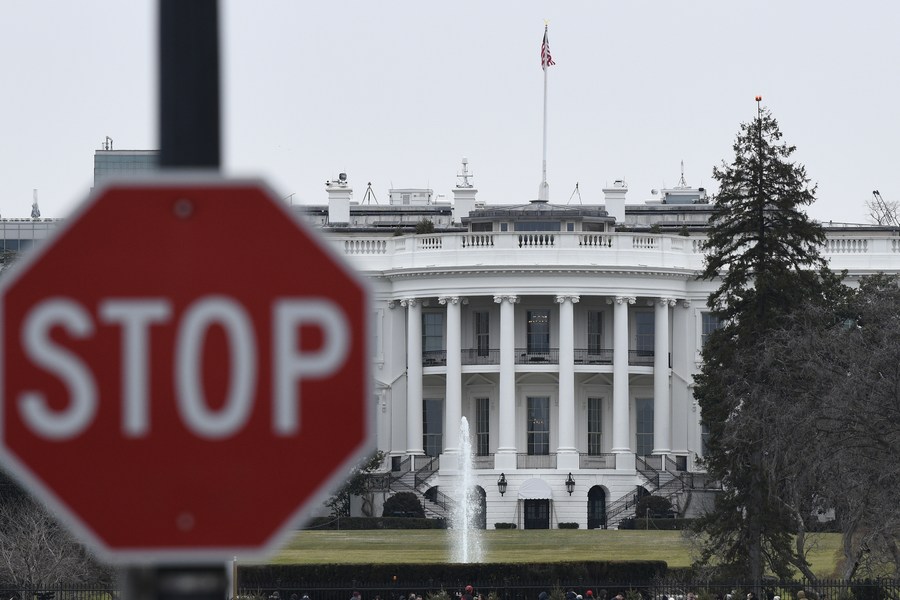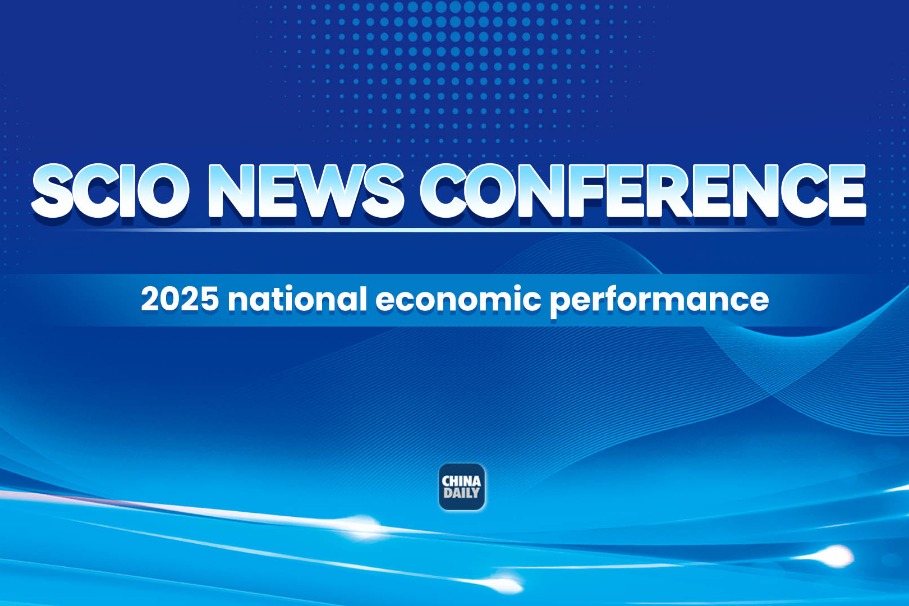US urged to end blame game on oil
By JAN YUMUL in Hong Kong | China Daily | Updated: 2022-10-20 09:35
Saudis made scapegoats for energy policy shortcomings, analysts say

The United States should stop the blame game over energy supplies and instead take a hard look at its own policies in the sector, analysts say in the wake of Washington's threat to review its relations with Saudi Arabia after the Arab nation and other oil producers moved to cut their output.
The experts say Washington should be honest in recognizing the cause of the energy crisis and adopt a strategy that promotes green energy while not neglecting projects critical for energy security.
"The United States is the world's top producer of oil, including crude, other petroleum liquids, and biofuels, and has been since 2018. Therefore, it should review its own energy strategy rather than blaming others," said Anis Khayati, an economics professor at the College of Business Administration at the University of Bahrain.
The US has accused Saudi Arabia of coercing other members of the Organization of the Petroleum Exporting Countries and its allies, collectively known as OPEC+, into a reduction of 2 million barrels a day that the group announced on Oct 5.
On Sunday, White House national security adviser Jake Sullivan said that US President Joe Biden will act "methodically" in deciding how to respond to Saudi Arabia, and that the options will include changes to US security assistance. Some US lawmakers want to halt all arms sales and military aid to the country.
The Arab League, the Gulf Cooperation Council, the Organization of Arab Petroleum Exporting Countries and the Organization of Islamic Cooperation have all spoken up in support of Saudi Arabia and its strategy for stabilizing the oil markets.
According to Statista, an online business intelligence portal, the US produced the most oil in the world in 2021, at around 16.6 million barrels of oil per day on average. Saudi Arabia and Russia filled out the top three.
Harmful sanctions
Gokhan Ereli, Gulf Studies coordinator at the Center for Middle Eastern Studies in Turkiye, said the global energy crisis — triggered by the sanctions imposed on Russia over its conflict with Ukraine — has taken on a new dimension following the decision of OPEC+ to cut oil production.
"The US' alternative energy strategies could include realigning its energy relations with Iran and Venezuela, as well as introducing 60 million barrels of oil with a few other economies from strategic reserves into the world market," Ereli told China Daily.
"But in this instance, neither of the potential answers is a long-term or permanent remedy to the energy crisis."
Iran and Venezuela are under US sanctions. In May, Iranian Oil Minister Javad Owji visited Venezuela to discuss with President Nicolas Maduro ways to overcome the impact of US sanctions against both nations.
The United Nations has been calling for the lifting of unjust and harmful sanctions that have been hurting Iran and Venezuela.
Rasha Al Joundy, a Gulf expert and senior researcher at the Dubai Public Policy Research Centre in the United Arab Emirates, told China Daily that Saudi Arabia and other OPEC+ members are practical and have "deep experience in studying the energy market", so it is inconceivable that the group is used for political reasons by an individual member.
She said the US should realize that countries in the Gulf region will not put the security of the oil market or their economic interests aside to promote any political agenda or to interfere with the US midterm congressional elections in favor of the Democrats by postponing the oil cut.
"The US administration should be honest to realize the causes of this crisis and deal with the solution properly by putting a strategy that balances a green energy future but at the same time does not neglect critical projects to energy security," she said.
Mohammed Alyahya, a fellow at the Harvard Belfer Center's Middle East Initiative and senior fellow at the Hudson Institute, wrote in an opinion article in The Wall Street Journal on Oct 13 that "blaming Saudi Arabia, or OPEC+, or (Russian President) Vladimir Putin, for an energy crisis that results from a policy of switching from carbon fuels to 'clean energy' — on the basis of what look like utopian assumptions — is disingenuous".
He said demonizing Saudi Arabia over the oil output cut amounts to scapegoating amid the US' own failures to step up energy production.
Scapegoating, Alyahya wrote, poisons the democratic process by trying to prevent citizens from properly responding to the results of their own choices.
"In doing so, politicians short-circuit the self-correcting mechanisms that allow democracy to function. Instead, elected officials make voters endure the negative consequences of bad policy choices by blaming foreign entities for predictable outcomes," he wrote.
Xinhua contributed to this story.
jan@chinadailyapac.com
























